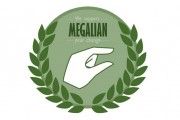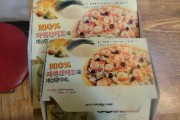From Naver:
Foods Like Ramen and Kimchi Show a Reduction in Sodium by 21%
Korean FDA: “Pushing forward the policy to reduce sodium.”
On July 18th, the Ministry of Drug and Food Safety announced it has reduced the average amount of sodium contained in processed foods by 21% since 2012.
In 2012, the number of reduced sodium products was 52, in 2013, 58, and in the first half of this year the number has already reached 70 products. Each year, the number of participating businesses is only growing.
Among the food groups, noodle-based foods like ramen have had the most sodium-reduced products with 60 foods making the list. Meanwhile, there were 16 sauce-based products, 9 kimchi-based products, and 9 cheese-based products. On average, the cheese-based foods showed a drop of 32.5% in sodium, the highest of all.
Ottogi (46 products), Nongshim (27 products), Daesang (15 products), among others have aggressively joined in efforts to reduce levels of sodium in their products.
Among the individual products which have shown the sharpest decrease in sodium are Myun Sarang Pyeongyang Mulnengmyun (with a 59.2% decrease from before), Jo-eun Sangpoom Children’s Cheese (47.1%), Tojong Woncho Gwihan Laver (45.5%), Children’s Enfant Cheese (45.1%), and Wonmul Sanduelae Beef (41.7%).
Popular products like Shin Ramyeon (9.6%), Alkeunhan Neoguri (13.3%), and Wangddukkeong (29.2%) also successfully reduced their sodium levels.
The Korean FDA explained that, “There was concern over a possible decline in sales if the sodium content was lowered, but actually we concluded that the sales haven’t been wildly impacted at all and the rate of participation has only grown.”
Not only the processed foods industry, but the dining out food industry as well is participating in reducing sodium content.
Last year 8 restaurants including Nolboo Budae Jjigae, Bongchu Jjimdalk, Onigiri and Gyudong dropped the sodium content of 18 menu items. This year, 7 others including Lotteria, Seven Springs, and HanSot Doshirak have plans to lower the sodium in their menus as well.
Also 12 food-service enterprises including DongWon Foods, Samsung Wellstory, Shinsegae Foods, and Our Home are currently testing an effort for “Fresh and Healthy Food Services” that keeps sodium contents at 1,300 mg per serving.
The Ministry of Drug and Food Safety said: “The voluntary efforts of the food industry’s and their dedication to lowering the sodium content of its products places Korean citizens 5th among the OECD nations for sodium intake.” They also stated that “This is a solid plan to develop the technology that, along with administrative support, will one day truly show that both sodium reduction technology and policy can go hand in hand.”
Comments from Naver:
saku****:
It’s a great policy. There is a reason why S. Korea ranks #1 in the world for stomach cancer. Salty things just aren’t good for the body.
rt33****:
Low-sodium diets are healthy.
silv****:
Would food companies only be lowering the sodium content? They might also be lowering some other content.
lade****:
If you add a dash of salt because the taste is too plain, the effort becomes useless.
dhxo****:
When you’re cooking using a powder, if you limit yourself to just a dash, that’s fine…
vant****:
If you raise the price with the facade of it being ‘healthy food’, I’m gonna kill you.
naga****:
Reducing sodium is a great thing but to maintain taste, I sure hope they aren’t tossing in other chemicals or additives.
tiny****:
They will lower the sodium but the price will go up. Just like Spam Lite, ke. I really don’t get it. If you reduce the sodium content then the production price should fall as well. So, why do they sell it for more?
ship****:
They will just put the new labels for ‘low-sodium and well-being food’ and the price will go up!
choi****:
I think it’s a good idea. It’s better that the products have much less sodium content and you can add salt as needed to fit your taste.








